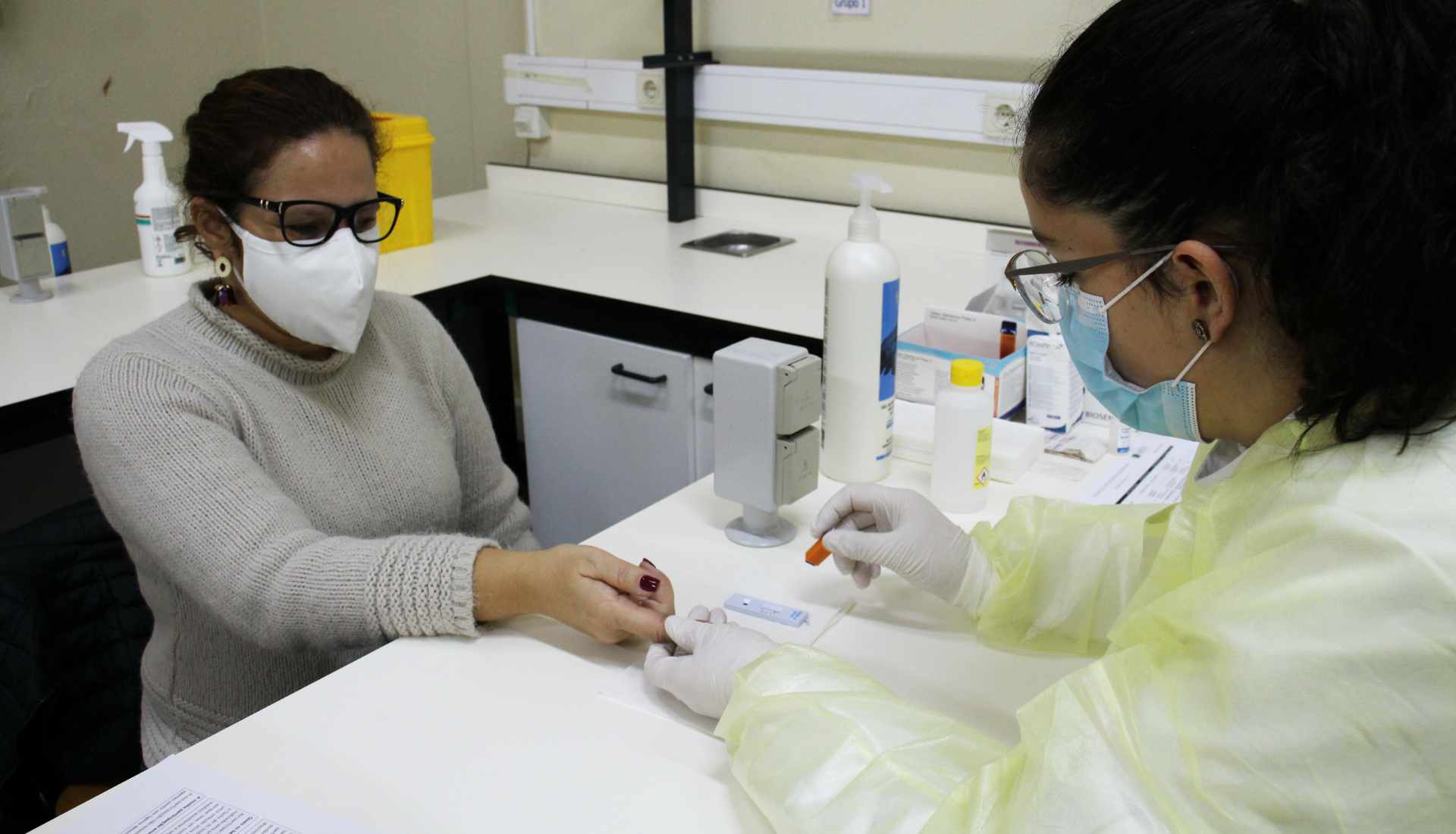A project coordinated by the Faculdade de Letras da Universidade do Porto (FLUP), which included the participation of the Instituto de Saúde Pública da Universidade do Porto (ISPUP), the Instituto de Sociologia da Universidade do Porto (ISUP) and the Faculdade de Engenharia da U.Porto, has mapped the difficulties experienced by female cleaning service workers during the COVID-19 pandemic.
The project, entitled Cleaning in times of pandemic: between precariousness and health risks for female cleaning service workers, emerged with the aim of understanding the risks to which these women were exposed during the exercise of their profession, and to understand whether there was a worsening of their working conditions, generally marked by precariousness, during the period in question. At the same time, the aim was to understand the behaviour these professionals adopted to prevent the transmission of COVID-19 in their workplace and to understand the impact of the pandemic on their mental health and well-being.
For example, it was found that half of the women interviewed felt that their profession put them at risk of contracting COVID-19 and that, since the start of the pandemic, 62% have felt agitated or easily alarmed. A significant number of women reported having health conditions that present as risk factors for developing more severe manifestations of COVID-19 in case of infection, such as cardiovascular diseases, diabetes and chronic diseases of the respiratory system, and the majority of women indicated concerns about not being able to receive medical care in case of need.
The importance of the project
At the onset of the pandemic, clean-up activities emerged as a strategic and critical sector for the proper functioning of other sectors of activity.
“After the declaration of the first state of emergency in the country, cleaning service workers saw their professional activity intensify, especially in critical sectors of response to the pandemic, such as hospitals and commercial and public buildings. Thus, this was one of the professional classes which were most at risk of contracting the infection,” explains Isabel Dias, Professor at FLUP and coordinator of the project.
“These women exercise a profession that has little visibility and does not appear included among the professional groups socially recognised for the relevance of their tasks. Thus, we wanted to understand if the COVID-19 pandemic contributed to worsening the working conditions of these professionals and if these women were more exposed to the risk of contracting the infection due to the need to continue their work during lockdown periods.”
To assess the impacts of the COVID-19 pandemic on female workers in this sector, the researchers conducted face-to-face questionnaires to a sample of 436 women, from the northern region of the country, between the period of November 3rd of 2020 and May 17th of 2021.
The women to whom the questionnaire survey was applied performed cleaning activities in sectors that remained active during critical periods of the pandemic: hospitals, several faculties of the University of Porto, buildings of the judicial system in the northern region of the country, large commercial surfaces, and companies responsible for the maintenance of public transportation in the region.
The survey covered aspects related to the health conditions of these women, their preventive attitudes towards COVID-19, perceptions of the pandemic, working conditions and also sociodemographic data to characterise their profile.
The portrait of the occupational and health situation of female cleaners
Among the 436 female workers surveyed, it was found that half work six or more days per week. About one third of these women have always worked in the cleaning sector, 48% of which started working before the age of 18.
Most of the participants were aged between 51 and 60 years old – which reveals the presence of an older female workforce in this sector when compared to the Portuguese population – and had only completed primary and basic education.
When questioned about the protective measures adopted during the pandemic, more than 95% of female workers said they always used a protective mask and washed their hands frequently. However, weather due to distraction or reflex, they continued to touch their mouths, eyes and noses. Specific care in handling the uniform was the only hygiene measure which was not carried out frequently, “which could be associated with the limited number of uniforms made available to the workers”, said Isabel Dias.
According to the women interviewed, the protection measures with a higher cost, such as changing shift schedules, promoting vocational training and transporting workers to the workplace, were less implemented.
As for the impact of the pandemic on the mental health and well-being of these female employees, a substantial number were found to be very concerned about the potential consequences of the pandemic situation. More than three-quarters were very concerned that COVID-19 could have very serious consequences for their health, and about two-thirds were very worried that they would die from complications caused by the disease.
62% said they had felt more agitated or easily alarmed since the beginning of the first lockdown. 61% felt more tired and exhausted and 22% reported experiencing panic attacks. The scenario that most troubled the respondents was the possibility of not getting medical care in case of need, followed by the possibility of having to be quarantined and the concern for the safety of their loved ones.
Regarding the health profile of the participants in the study, 24% reported having some type of cardiovascular disease, 8% indicated having diabetes, and 14% mentioned suffering from a chronic disease of the respiratory system, pathologies which constitute risk factors for the development of more serious manifestations in case of infection.
The results also indicate the predominance of precarious work contracts among these women. About 40% of the women workers are hired on a part-time basis, mostly through companies in the facility services sector, which provide services in various locations and sectors of activity. “This modality of work is proportionally inverse to a condition of labour stability and all the guarantees which are intrinsic to it,” says the researcher.
It should be noted that most of the women indicated remaining with the same working hours due to the pandemic, or having their working hours reduced, which also implied a salary cut. Overall, the professionals reported having experienced an increase in the pace of work within the same contracted hours. Half rate their work as riskier than most professions with regard to the risk of contracting COVID-19.
Recommendations for improving the working conditions of these professionals
Given the results of the study, which show a worsening of the working conditions of cleaning workers, due to COVID-19, the researchers present a series of recommendations directed at employers, their clients and also political decision-makers.
“One of the suggestions is the development of training programmes directed at the workers’ superiors and clients, so that they can take into account the socio-demographic specificities of this professional group and their working conditions,” clarifies Isabel Dias.
Besides this, the researchers highlight the importance of intensifying short-term training sessions for cleaning professionals. These sessions should take into account not only the specificities of cleaning services, the products used and their respective handling and safety, but also the procedures and protective measures to be implemented throughout their working day, in the context of COVID-19.
With this recommendation in mind, a series of short informative videos were also designed by the project team, with the aim of explaining the main self and heteroprotection measures that should be applied by female workers at the various stages of their professional activity.
Another recommendation is to facilitate communication processes between companies, workers, and their clients, in order to better identify problems related to adequate working conditions.
The reinforcement of the processes of ensuring the adequacy of working and safety conditions to the specific needs of the workplace is also recommended, as well as the adaptation to the ergonomic characteristics of each gender, avoiding the use of standard (male) equipment that leaves female workers more exposed to the virus.
It is also suggested that there is an increase the comfort and safety of the common resting spaces for female workers, improving their salubriousness, luminosity, size, and air circulation, as well as the creation of psychological consultation services to help these women deal with the negative impact of COVID-19 on their lives.
Public presentation of results
The results of the project will be formally presented on the 26th of October, in a session to be held in a face-to-face format and online, starting at 11 am.
The project, Cleaning in times of pandemic: between precariousness and health risks for female cleaning service workers, was funded with 30 thousand euros by the FCT – Foundation for Science and Technology, under the Special Support Gender Research for COVID-19.
Researchers Alexandra Lopes, João Baptista, José Azevedo and Pedro Norton, from ISPUP, Ana Sofia Maia and Pedro Marques also participated in the project.
Image: Pixabay/Khaligo



